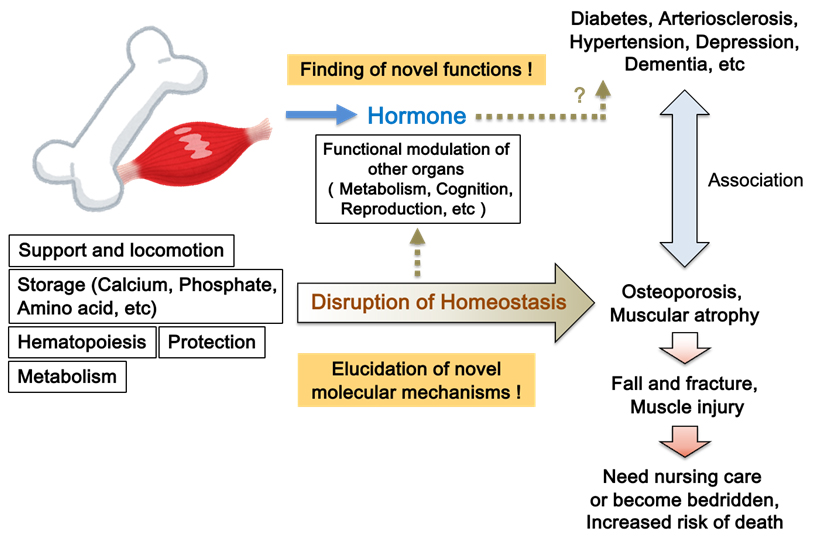The musculoskeletal system (bones and skeletal muscles) serves not only to facilitate physical activity but also functions as a multitasking organ involved in the regulation of various other organs through minerals, metabolic products, and hormones.
A decline in bone mass or quality can lead to osteoporosis and fractures, which may subsequently result in increased risk of disability, bedridden states, and mortality. Moreover, osteoporosis is intricately linked with a myriad of conditions such as diabetes, arteriosclerosis, hypertension, dyslipidemia, chronic kidney disease, chronic obstructive pulmonary disease, depression, and dementia. Thus, it is imperative to consider bone health in the context of these associated diseases. Similarly, a reduction in skeletal muscle mass or function has been reported to correlate with cardiovascular diseases, cancer, dementia, and overall lifespan. Consequently, the musculoskeletal system is an important organ that underpins human vitality.
Our research laboratory aims to elucidate novel molecular mechanisms that maintain the quantity and quality of the musculoskeletal system, as well as to uncover the roles of newly identified hormones produced by this system. Through this understanding, we strive to develop preventive and therapeutic strategies for a variety of diseases grounded in the musculoskeletal system.

更新情報
- Our paper has been accepted for publication in Molecular Neurobiology.Gotoh et al.'s paper has been accepted for publication … 続きを読む: Our paper has been accepted for publication in Molecular Neurobiology.
- Presentation in conference
 Professor Yoshizawa performed an oral presentation titl… 続きを読む: Presentation in conference
Professor Yoshizawa performed an oral presentation titl… 続きを読む: Presentation in conference - Information for Graduate School Admissions
 This year's graduate school admissions guidelines have … 続きを読む: Information for Graduate School Admissions
This year's graduate school admissions guidelines have … 続きを読む: Information for Graduate School Admissions


